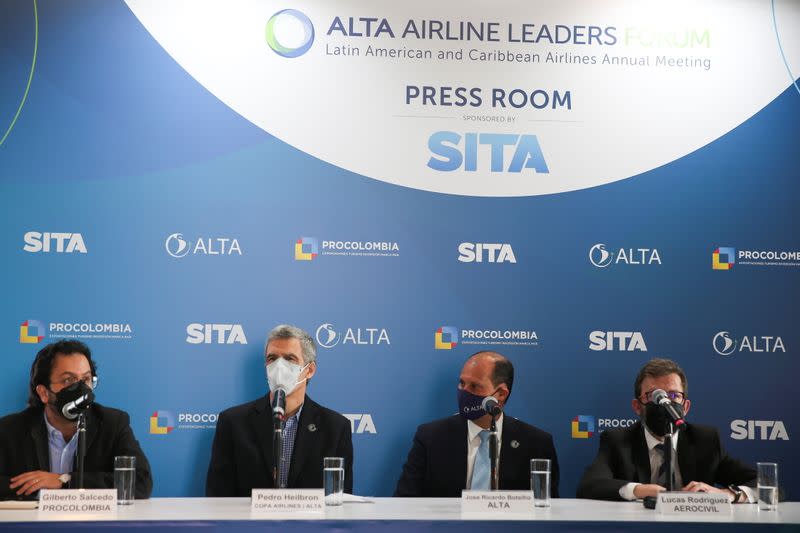Standardization of travel rules key for Latin America airlines' recovery

By Nelson Bocanegra and Carlos Vargas
BOGOTA (Reuters) - Getting standardized rules for international travelers amid the coronavirus pandemic is the biggest hurdle for Latin American airlines, with their recovery threatened by a lack of consensus among health authorities, industry leaders said on Sunday.
Passengers suffer constant delays and restrictions as they travel between countries due to differing entry requirements established to curb the spread of different strains of the coronavirus, aviation industry directors said at a conference in Bogota, Colombia.
"Standardization is vitally necessary to build confidence so people return to flying," said the Latin American and Caribbean Air Transport Association's (ALTA) chief executive, Jose Ricardo Botelho.
The lack of accord between different countries, with frequent changes to air travel rules, leads to uncertainty for passengers, airlines, and airline staff, said Copa Airlines Chief Executive Officer Pedro Heilbron.
"When you carry passengers and there are thousands of requirements, it's almost impossible that at least some passengers don't have the right paperwork," he told journalists in opening remarks at the ALTA annual conference.
Some countries even fine airlines for passengers' non-compliance with the rules, Heilbron added, though did not say which ones.
Almost a year and a half of restricted travel has put airlines and airports across the globe under severe financial strain, necessitating a more complete re-opening of travel so that the industry can recover, saving millions of jobs.
"Generally speaking there are quite a few agreements and there is relative standardization, but the big differences come from health authorities," said Lucas Rodriguez, the head Colombia's civil aviation authority's air transport office.
The need to meet new travel requirements has dented airlines' balance sheets.
The International Air Transport Association (IATA), the industry's main trade body, this month revised its estimate for airlines' net losses this year to $51.8 billion, from a previous forecast of $47.7 billion.
IATA expects airlines to lose $11.6 billion in 2022 in revenue.
(Reporting by Nelson Bocanegra and Carlos Vargas; Writing by Oliver Griffin; editing by Diane Craft)

 Yahoo Finance
Yahoo Finance 